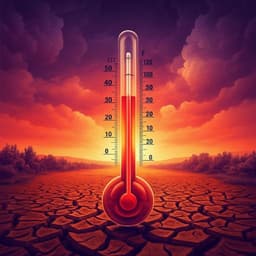
Environmental Studies and Forestry
Pope Francis, the Roman Catholic Church, and Citizen Attitudes Towards Climate Change in Latin America
A. Ecker, F. Nüssel, et al.
This research conducted by Alejandro Ecker, Friederike Nüssel, and Jale Tosun explores how trust in the Catholic Church and perceptions of Pope Francis shape Latin Americans' beliefs about climate change. The findings reveal that Roman Catholics are less likely to acknowledge man-made climate change, contrasted with evangelical Christians and the unaffiliated. The study suggests a unified Church stance could enhance climate action.
Related Publications
Explore these studies to deepen your understanding of the subject.







